Introduction to Tokyo Institute of Technology
Overview
Tokyo Institute of Technology (Tokyo Institute of Technology, Japanese: Tokyo Institute of Technology, abbreviated as: Tokyo Institute of Technology/とうこうだい) is a national research university located in Tokyo, Japan, founded in 1881. Its history can be traced back to the Tokyo Workers School established in 1881. In 1929, the school was officially renamed Tokyo Institute of Technology. In 2004, the school was restructured into a national university corporation. Tokyo Institute of Technology is a member of Japan's Super International University Plan (Class A) and one of Japan's designated national universities.
Campus
The main campuses of Tokyo Institute of Technology include:
Ookaya Campus: Located in Meguro-ku, Tokyo, it is the main campus with most of the faculties and graduate schools.
Okisho Campus: Located in Meguro-ku, Tokyo, it mainly has the School of Science, the School of Engineering, the School of Life Sciences, etc.
Hiyoshi Campus: Located in Yokohama, Tokyo, it mainly has the Institute of Comprehensive Science and Technology, the Institute of Innovative Science, etc.
Educational philosophy
The educational philosophy of Tokyo Institute of Technology is to cultivate outstanding talents with international vision, innovation ability and social responsibility. The school emphasizes the combination of theory and practice, pays attention to the all-round development of students, and encourages students to actively participate in social activities and international exchanges. The school is committed to contributing to the progress of society and mankind through high-level education and research.
Disciplines and Faculties
Tokyo Institute of Technology is a top research university with science and engineering as its main disciplines, with the following faculties and graduate schools:
Undergraduate (Faculty)
Science: including mathematics, physics, chemistry, earth sciences, etc.
Engineering: including mechanical engineering, electrical and electronic engineering, information and communication engineering, materials science and engineering, environmental and social engineering, etc.
Life Science and Technology: including biological sciences, bioengineering, pharmaceutical chemistry, etc.
Information Science and Technology: including computer science, information systems, software science, etc.
Social Science and Technology: including urban planning, transportation systems, environmental engineering, etc.
School of Creative Sciences: including interdisciplinary research, innovation and entrepreneurship, etc.
Graduate School (Graduate School)
Graduate School of Science: offers master's and doctoral degree programs in the fields of mathematics, physics, chemistry, and earth sciences.
Graduate School of Engineering: offers master's and doctoral degree programs in the fields of mechanical engineering, electrical and electronic engineering, information and communication engineering, materials science and engineering, and environmental and social engineering.
Graduate School of Life Sciences and Engineering: offers master's and doctoral degree programs in the fields of biological sciences, bioengineering, and medicinal chemistry.
Graduate School of Information Sciences and Engineering: offers master's and doctoral degree programs in the fields of computer science, information systems, and software science.
Graduate School of Social Sciences and Engineering: offers master's and doctoral degree programs in the fields of urban planning, transportation systems, and environmental engineering.
Institute of Creative Sciences: offers master's and doctoral degree programs in the fields of interdisciplinary research, innovation and entrepreneurship.
Graduate School of Integrated Science and Engineering: offers master's and doctoral degree programs in the fields of interdisciplinary research, integrated science and technology.
Features
Advantages in science and engineering: Tokyo Institute of Technology has extremely high research level and education quality in the fields of science and engineering, especially in the fields of materials science, nanotechnology, information technology, and bioengineering. The school has first-class laboratories and research facilities, providing an advanced research platform for scientific researchers.
International cooperation: The school has established cooperative relations with universities in many countries and regions, providing students with rich international exchange and internship opportunities.
Industry-university-research cooperation: The school cooperates with many companies and research institutions to carry out joint research and internship projects, providing students with rich practical opportunities.
Entrepreneurship support: The school has an entrepreneurship center to support the innovation and entrepreneurship activities of students and faculty and staff, and provide funding, venues and technical support.
Featured research institutes: The school has several research institutes, such as the Tokyo Institute of Technology Materials Research Institute and the Tokyo Institute of Technology Life Science Institute, providing scientific researchers with advanced research platforms.
Ranking
According to the 2024 QS World University Rankings, Tokyo Institute of Technology ranks 56th among universities in the world. The school performs particularly well in fields such as materials science, engineering, and computer science.
Fees
The tuition fees at Tokyo Institute of Technology are relatively reasonable because it is a national university. Generally speaking, the annual tuition fees for undergraduates are around 535,800 yen, and graduate students may be slightly higher. In addition, there are other fees such as admission fees and facility fees.
Campus Life
The campus of Tokyo Institute of Technology is beautiful and has modern facilities. The school offers a variety of club activities and academic research opportunities to help students develop comprehensively. The school has also established cooperative relationships with many well-known universities around the world, providing students with abundant international exchange and internship opportunities.
Internationalization
Tokyo Institute of Technology attaches great importance to international education and offers a variety of international exchange programs and English-taught courses. The school has established cooperative relationships with universities in many countries and regions, providing students with abundant overseas study and internship opportunities. The school enrolls a certain number of international students every year, and the proportion of international students increases year by year, creating a multicultural and international learning environment.
Contact Information
Address: 2-12-1, Ookayama, Meguro-ku, Tokyo, 〒152-8550
Tel: +81-3-5734-2111
-
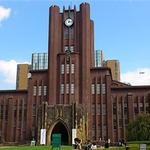
The University of Tokyo
-

Kyoto University
-
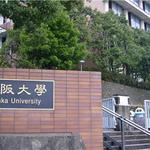
Osaka University
-

Waseda University
-

Hitotsubashi University
-

Nagoya University
-
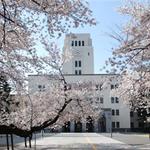
Tokyo Institute of Technology
-
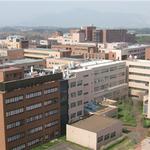
University of Tsukuba
-

Keio University
-
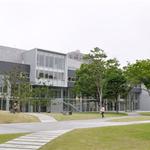
Tohoku University
-

Mesoamerican University
-

Istmo University
-

Mariano Galvez University of Guatemala
-

Regional University of Guatemala
-

Galileo University
-

Francisco Marroquín University
-

Rafael Landívar University
-

University of the Valley of Guatemala
-

University of San Carlos of Guatemala
-

Technological Institute of Tlaxcala Plateau
-

Golfo University
-

Technological University of South Sonora
-

Technological University of Huejotzingo
-

Tizimín Institute of Technology
-

Chilpancingo Institute of Technology
